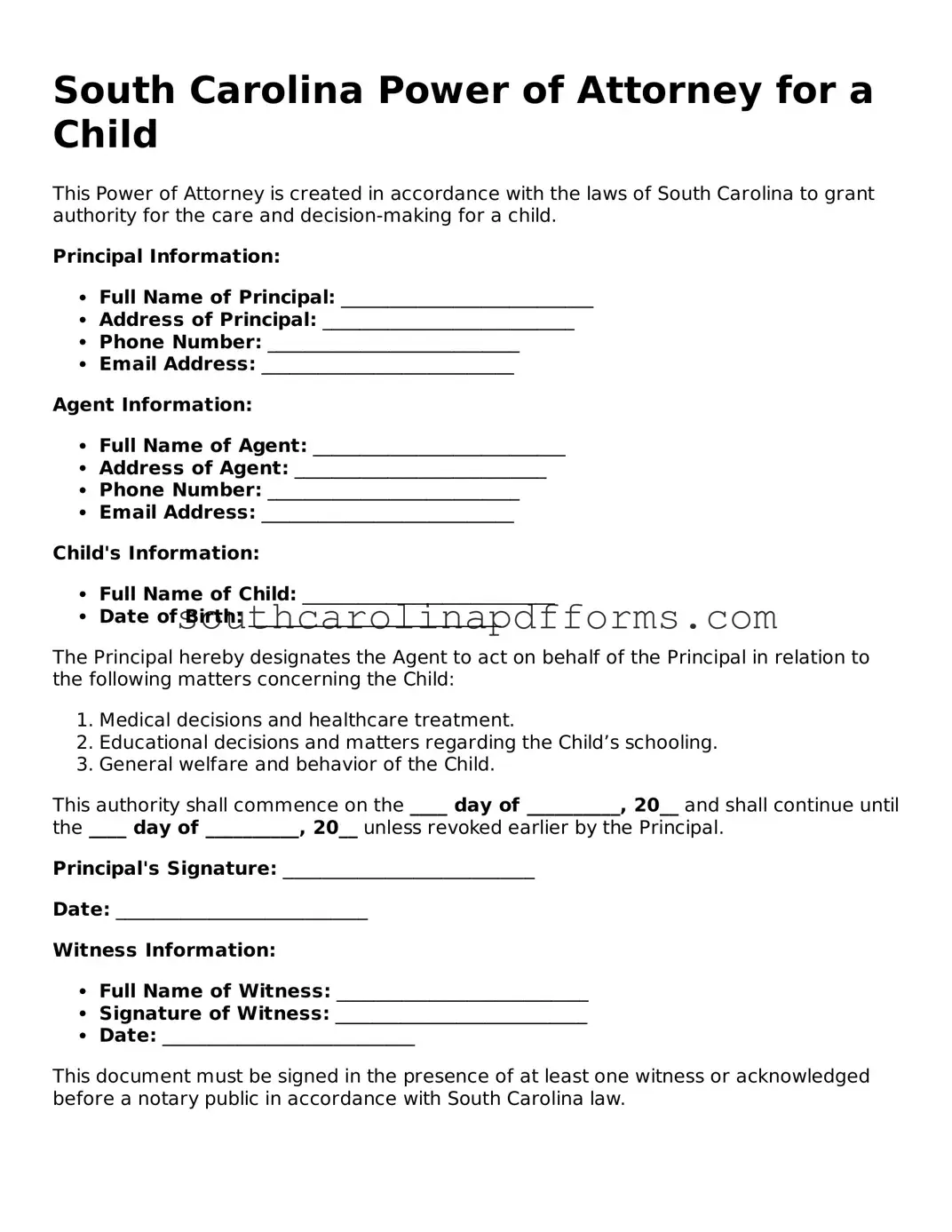Attorney-Approved South Carolina Power of Attorney for a Child Document
The South Carolina Power of Attorney for a Child form is a legal document that allows a parent or guardian to grant another individual the authority to make decisions on behalf of their child. This arrangement can be beneficial in various situations, such as when parents need to travel or are temporarily unable to care for their child. Understanding the details of this form is essential for ensuring the child's well-being and the smooth execution of parental responsibilities.
Access Power of Attorney for a Child Here
